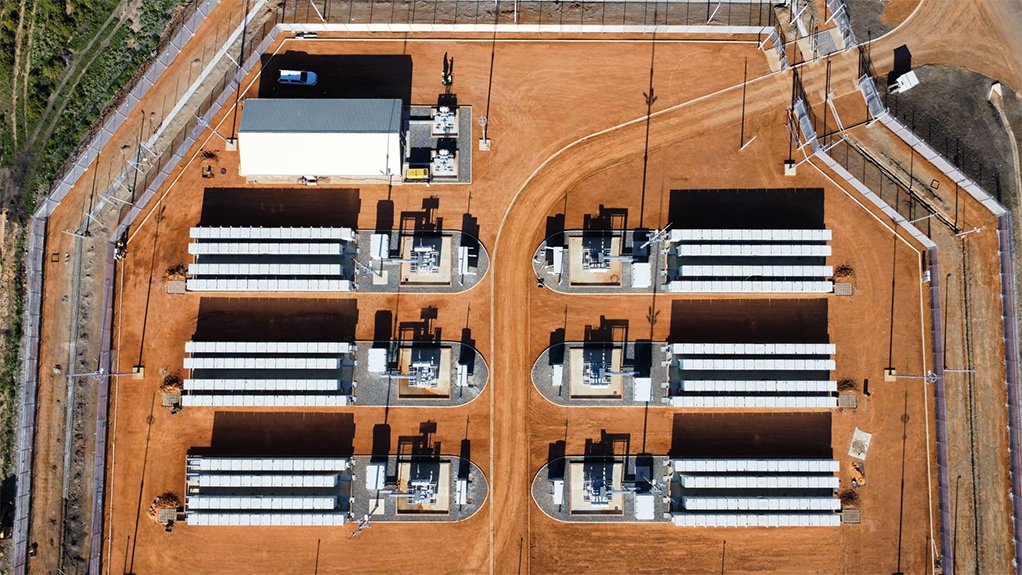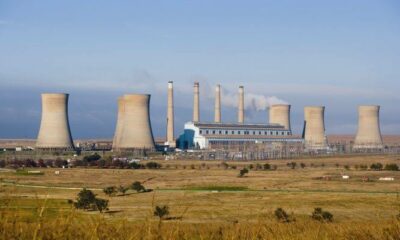Business
Eskom’s R11-Billion Battery Blunder: Private Sector Leaves State Utility in the Dust

Only three of 12 planned Eskom battery sites are online and a single private project is already beating them all.
South Africans have grown used to energy promises that fizzle out. But Eskom’s R11-billion Battery Energy Storage System (BESS) project, meant to revolutionise how the country stores and uses power, is quickly becoming a symbol of bureaucratic paralysis.
Two years after Eskom launched what was hailed as Africa’s most ambitious utility-scale battery rollout, less than a fifth of its planned power is actually up and running.
Meanwhile, the private sector is leaving the state utility in the dust.
The numbers don’t lie and they’re not pretty
As of June 2025, Eskom has only three battery sites up and running. These deliver just 68MW of output and 192MWh of storage – a far cry from the 343MW and 1,440MWh originally promised by the end of 2024.
To put that in perspective, one private developer, Scatec ASA, has already built a hybrid solar and battery facility that dwarfs Eskom’s entire rollout. Located in Kenhardt, Northern Cape, it boasts 225MW of battery output and 1,140MWh storage, and was completed by December 2023 – in just 18 months.
Compare that to Eskom’s latest timelines: some sites are now set to wrap up by December 2025, while others remain stuck in procurement limbo. Phase 2 of the project hasn’t even begun.
So what’s the holdup?
Eskom blames its sluggish progress on conditions attached to a massive debt relief package, which prevents it from borrowing more money without National Treasury’s say-so. That financial handcuff has slowed down procurement and construction across multiple sites.
In October 2024, Eskom assured the public that three more sites would go live by early 2025. None have been completed.
According to Eskom’s updated timeline:
| Site | Peak Output | Storage Capacity | Status | Planned Completion |
|---|---|---|---|---|
| Skaapvlei (WC) | 80MW | 320MWh | In construction | Jan 2025 |
| Melkhout (EC) | 35MW | 140MWh | Not yet awarded | Dec 2025 |
| Graafwater (WC) | 5MW | 30MWh | In construction | Nov 2024 |
| Paleisheuwel (WC) | 9.5MW | 45MWh | In construction | Nov 2024 |
| Rietfontein (NC) | 1.54MW | 6.16MWh | Not yet awarded | Dec 2025 |
Sites that are already online include Elandskop (8MW/32MWh), Pongola (40MW/160MWh), and Hex (20MW/100MWh).
Public frustration simmers
On social media, the public response has been cutting. One user posted, “How can a state utility be outpaced by a single company in the middle of the Karoo?” Another wrote, “Load-shedding is here to stay if Eskom’s batteries are running on paper instead of power.”
Even industry insiders are losing faith. Energy analyst Lungile Mashele recently commented, “The delay in rolling out storage means South Africa remains vulnerable to supply shocks. Batteries are critical, not optional.”
Why batteries matter now more than ever
South Africa’s energy grid, under pressure from aging infrastructure and climate change, desperately needs flexible storage to stabilise supply. Battery storage is especially valuable for storing excess solar and wind energy during the day, then releasing it during evening peaks when demand spikes.
In theory, projects like Eskom’s BESS could make a huge difference – providing consistent power without burning more fossil fuels. But in practice, progress has been dismal.
By contrast, Scatec’s Kenhardt facility shows what’s possible with competent project management, funding, and political will. It has over three times the output and six times more storage than Eskom’s BESS rollout – and it’s already operational.
Meanwhile, government turns to IPPs
The Department of Mineral Resources and Energy (DMRE) is now looking to independent power producers (IPPs) to fill the gap. The government has contracted 1,591MW of power and 6,400MWh of battery storage through other programmes, with some projects expected to come online in 2026.
Among them is the Red Sands facility by Globeleq – set to deliver 153MW and 512MWh of storage.
Private sector 1, Eskom 0
South Africa’s energy future depends on reliable, dispatchable power. Battery storage could be a game changer – but only if it actually gets built.
Right now, Eskom’s BESS project is a cautionary tale, not a success story. Delayed, underperforming, and overshadowed by private competitors, it reflects the same old problems: slow procurement, debt bottlenecks, and a lack of urgency.
Unless Eskom can drastically accelerate its rollout, it may soon be forced to watch from the sidelines as others power the nation forward.
{Source: My Broad Band}
Follow Joburg ETC on Facebook, Twitter , TikTok and Instagram
For more News in Johannesburg, visit joburgetc.com



























